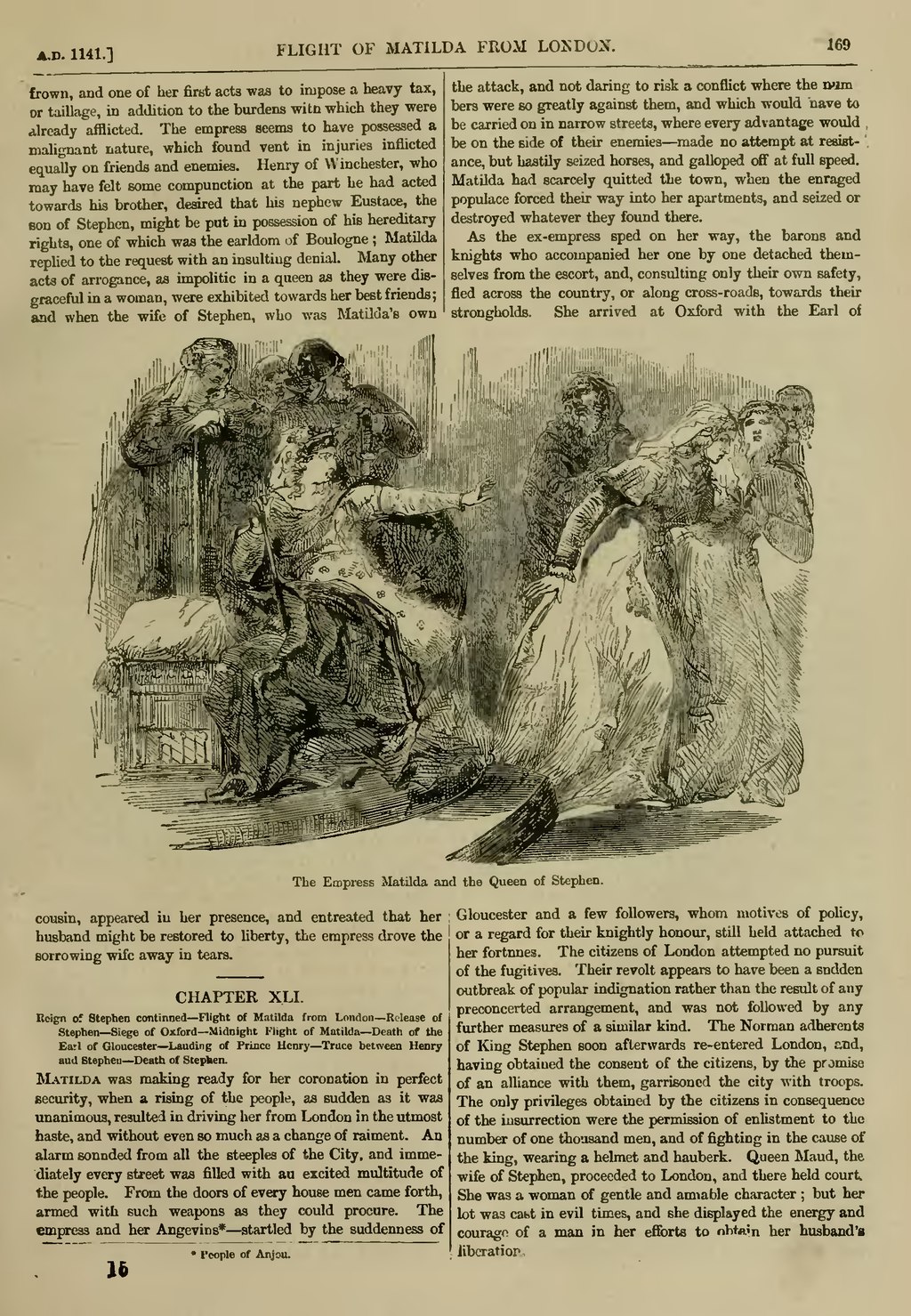frown, and one of her first acts was to impose a heavy tax, or taillage, in addition to the burdens with which they were already afflicted. The empress seems to have possessed a malignant nature, which found vent in injuries inflicted equally on friends and enemies. Henry of Winchester, who may have felt some compunction at the part he had acted towards his brother, desired that his nephew Eustace, the son of Stephen, might be put in possession of his hereditary rights, one of which was the earldom of Boulogne; Matilda replied to the request with an insulting denial. Many other acts of arrogance, as impolitic in a queen as they were disgraceful in a woman, were exhibited towards her best friends; and when the wife of Stephen, who was Matilda's own cousin, appeared in her presence, and entreated that her husband might be restored to liberty, the empress drove the sorrowing wife away in tears.

The Empress Matilda and the Queen of Stephen.
CHAPTER XLI.
Matilda was making ready for her coronation in perfect security, when a rising of the people, as sudden as it was unanimous, resulted in driving her from London in the utmost haste, and without even so much as a change of raiment. An alarm sounded from all the steeples of the City, and immediately every street was filled with an excited multitude of the people. From the doors of every house men came forth, armed with such weapons as they could procure. The empress and her Angevins[1]—startled by the suddenness of the attack, and not daring to risk a conflict where the numbers were so greatly against them, and which would have to be carried on in narrow streets, where every advantage would be on the side of their enemies—made no attempt at resistance, but hastily seized horses, and galloped off at full speed. Matilda had scarcely quitted the town the town, when the enraged populace forced their way into her apartments, and seized or destroyed whatever they found there.
As the ex-empress sped on her way, the barons and knights who accompanied her one by one detached themselves from the escort, and, consulting only their own safety, fled across the country, or along cross-roads, towards their strongholds. She arrived at Oxford with the Earl of Gloucester and a few followers, whom motives of policy, or a regard for their knightly honour, still held attached to her fortunes. The citizens of London attempted no pursuit of the fugitives. Their revolt appears to have been a sudden outbreak of popular indignation rather than the result of any preconcerted arrangement, and was not followed by any further measures of a similar kind. The Norman adherents of King Stephen soon afterwards re-entered London, and, having obtained the consent of the citizens, by the promise of an alliance with them, garrisoned the city with troops. The only privileges obtained by the citizens in consequence of the insurrection were the permission of enlistment to the number of one thousand men, and of fighting in the cause of the king, wearing a helmet and hauberk. Queen Maud, the wife of Stephen, proceeded to London, and there held court. She was a woman of gentle and amiable character; but her lot was cast in evil times, and she displayed the energy and courage of a man in her efforts to obtain her husband's liberation.
- ↑ People of Anjou.
